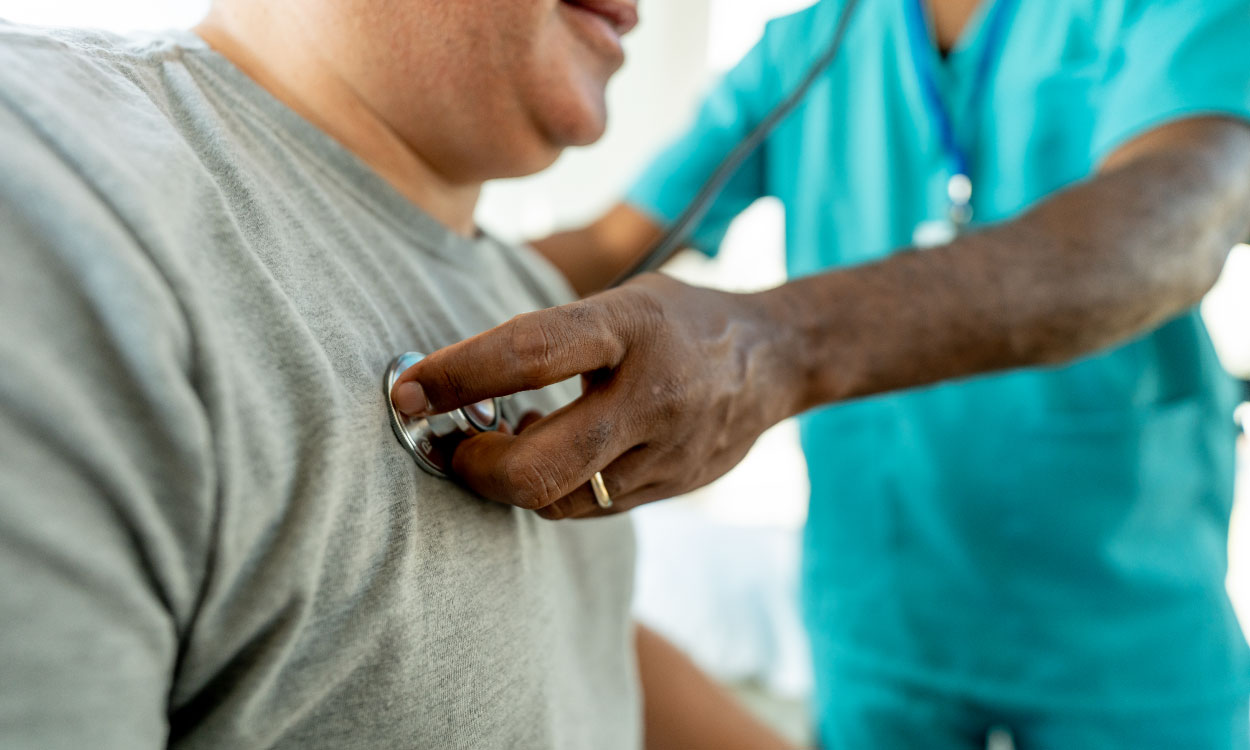Is Health Surveillance a Legal Requirement?
It goes without saying that all businesses must comply with their legal obligations to avoid incurring serious penalties. All employers have a general legal duty of care to protect the health and safety of their workforce, and in some working environments, where the risks are higher than others, there are specific legal provisions to take into account. As such, it’s important to use the occupational health tools available to support and safeguard staff so these risks can be limited and to help prevent the worst from happening and minimise liability.
In this article, we explain what health surveillance means for employers and whether it is a legal requirement in the workplace, along with the tests and processes involved, so employers can make a fully informed decision in order to fulfil their duty of care.

What is health surveillance?
In a previous article we covered how health surveillance is a programme of regular health checks designed to help protect the health and safety of those working in hazardous conditions. Carried out by a qualified occupational health (OH) expert, these checks identify signs of work-related health problems early so that appropriate measures can be put in place to minimise risks and help protect the health and safety of workers.
Is health surveillance a legal requirement?
According to the Health and Safety Executive (HSE), health surveillance is a legal requirement for workplaces where employees are exposed to health risks even after control measures have been implemented. As an employer, you may have already put in place the relevant checks and training for your staff, but health surveillance is still required to ensure these measures are sufficient.
Is health surveillance a legal requirement for every workplace?
Health surveillance is legally required for workplaces where employees are exposed to certain risks or hazardous conditions, such as:
- Heavy machinery
- Vibrations
- Harmful substances
- Noise
- Dust
- Chemicals
Safety Critical Medicals and Fit For Work Medicals are not health surveillance but are required for certain job specific roles. The medical assessment is for employees working in specific safety critical roles such as those working at heights, confined space workers or working night shifts to generally assess whether an employee is able to carry out their job safely and to the required level.
Although the responsibility to arrange the health surveillance programme falls to the employer as part of their duty of care, employees must also cooperate during the process. As such, it’s important for employers to communicate clearly and openly with their teams to explain the intention behind the health surveillance assessments is to benefit them, along with the implications should they choose not to comply.
What kind of tests does health surveillance cover?
There are various facets to health surveillance, ensuring no stone is left unturned when it comes to the health and safety of employees working in hazardous environments. Here at Healthier Workforce, our tests include:
- Audiometry (audio tests)
- Hand Arm Vibration (HAVS) tests
- Musculoskeletal
- Skin assessments
- Vision screening
- Drug and alcohol testing
- Spirometry (lung function) tests
Early detection of any issues during these tests will help to prevent the problem from worsening or becoming irreversible.
Who should carry out health surveillance of workers?
To get the maximum advantage from anything related to the health, safety and well-being of employees, it’s important that an occupational health expert is included. Their honest, impartial approach will ensure practical, pragmatic recommendations that are free from bias without any hidden agenda. The primary goal is reaching resolution for all parties involved. They also ensure all relevant HSE regulations are met and employers are being accountable for the health and safety of their teams.
Backed by a wealth of knowledge and experience, all information is handled by the OH professional with the utmost sensitivity and remains confidential.
What are the consequences of not having health surveillance?
For businesses where employees are exposed to risks in their line of work, failure to comply with the legal requirement of conducting health surveillance at the workplace will mean that employers are breaking the law and potentially exposing their staff and their business to significant risks.
What is the process for health surveillance?
At Healthier Workforce, we draw on a wealth of experience in the field of occupational health and have fine-tuned our health surveillance service over many years. Whether our client knows exactly what they need from us or would prefer to have some guidance, we talk things through to ensure they receive the most suitable solutions.
We typically speak with our client first to discuss the risk and provide our feedback and recommendations on the action required to safeguard staff and help prevent any further risks. These recommendations can include additional training and a forum for employees to raise any issues, both personally or any workplace hazards they have encountered.
Throughout their occupational health journey, employers are fully supported so that they can navigate the process as easily as possible on an ongoing basis. An OH expert will handle the admin side of things so you can focus on business operations with minimal disruption.
If you are looking to set up a health surveillance programme at your UK business to monitor the health and safety of your employees, our team at Healthier Workforce are on hand to help. We pride ourselves on our industry leading reporting times and flexibility to alleviate any stress for employers so they can concentrate on the running of their business.
No matter where you are based in the UK or the size and sector of your business, we’ve got you covered. Simply give us a call or complete a management referral today – it couldn’t be easier.

